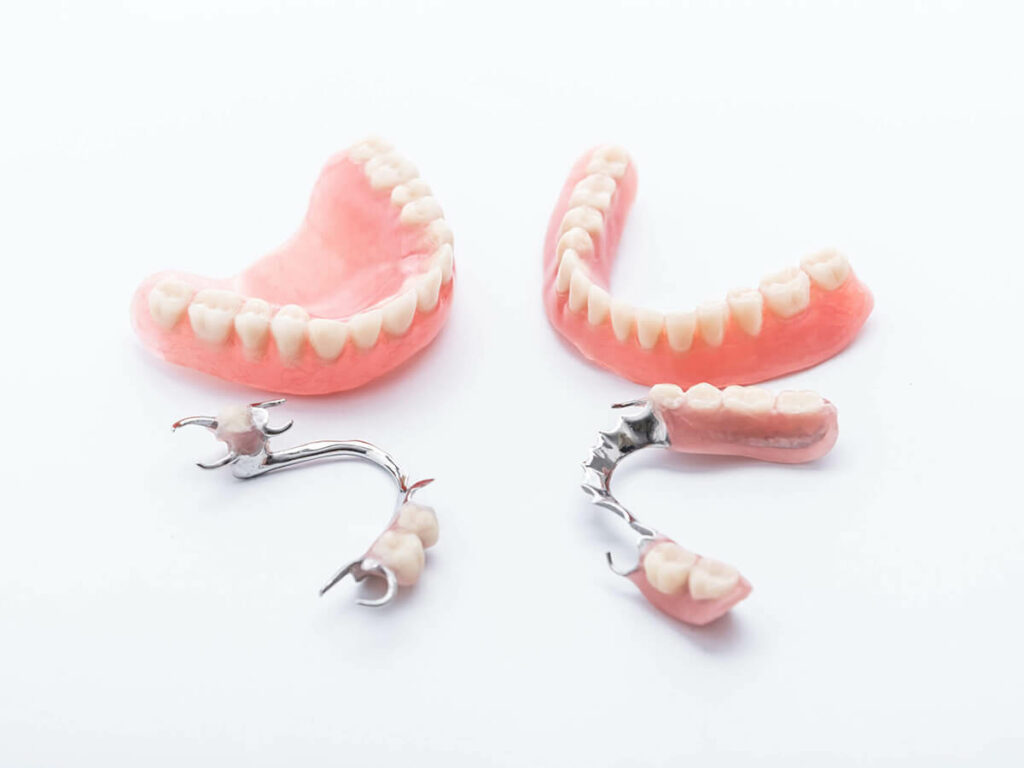Dentures in Burtonsville, MD
Rediscover the comfort and confidence of a full smile with our custom denture solutions. We specialize in creating high-quality dentures designed to enhance your teeth's functionality and aesthetics.
Custom Denture Solutions in Burtonsville, MD
Dentures are removable appliances that replace missing teeth, supported by the soft and hard tissues of the mouth. While traditional dentures are removable, some modern designs clip onto dental implants for added stability.
We offer several options to fit your needs and budget:
- Complete Dentures: Replace all teeth in the upper or lower jaw, restoring function and appearance.
- Partial Dentures: Fill gaps when some natural teeth remain, using clasps for support and easy removal.
- Implant-Supported Dentures: Snap onto implants for a secure, natural-feeling fit.
- Immediate Dentures: Placed right after tooth removal, so you’re never without teeth. Adjustments may be needed as your mouth heals.
Schedule an Appointment

-
How do I clean dentures?
Proper care keeps your dentures clean, comfortable, and long-lasting. Follow these tips:
- Rinse dentures after eating to remove food debris.
- Handle gently to avoid bending or damaging clasps.
- Clean your mouth with a soft toothbrush after removal.
- Brush dentures daily and soak in a non-abrasive cleanser.
- Soak overnight in a mild solution to maintain moisture and shape.
- Schedule regular dental checkups to ensure proper fit and oral health.
- Avoid abrasive cleaners, whitening toothpaste, bleach and hot water, which can damage or warp dentures.
-
What are the benefits of dentures?
- Improved Appearance: Restore facial structure and enhance your smile for a more confident look.
- Better Function: Fill gaps to improve speech and make eating easier.
- Durable & Cost-Effective: Last for years with proper care.
- Custom Fit: Tailored to your mouth for comfort and natural aesthetics.
-
How often do dentures need to be replaced?
Dentures typically last between 5 to 7 years before they need to be replaced. Over time, your dentures will wear and need to be relined, remade or rebased due to normal wear.
Schedule Your Consultation
Considering dentures? Book a consultation with our dental team to explore your options and find the best fit for your needs. Take the first step toward a confident, healthy smile—contact us today.

